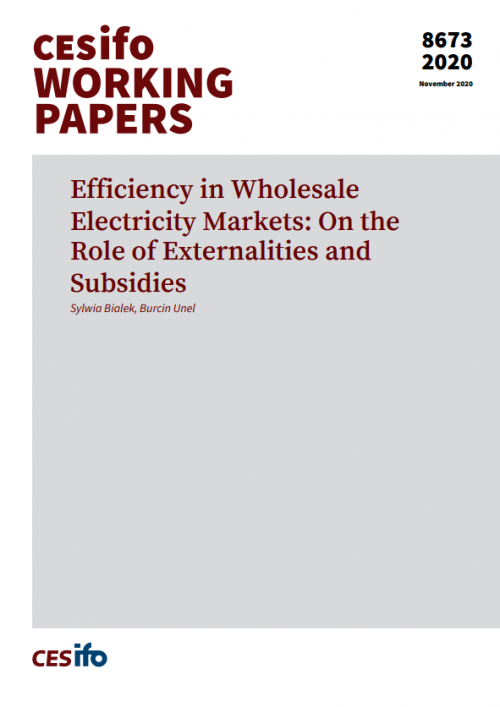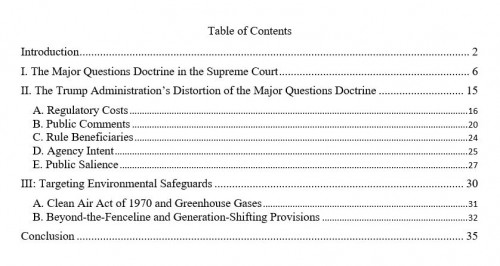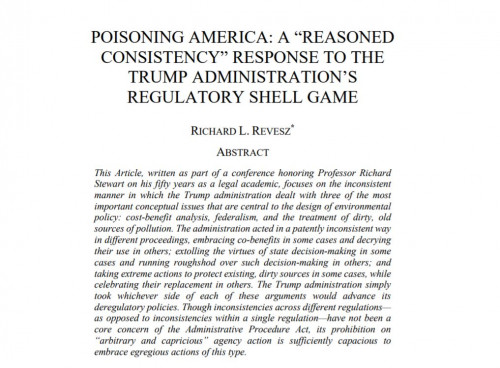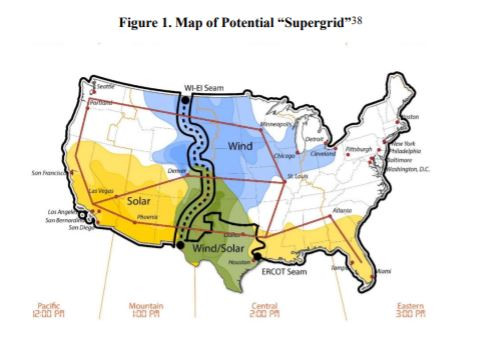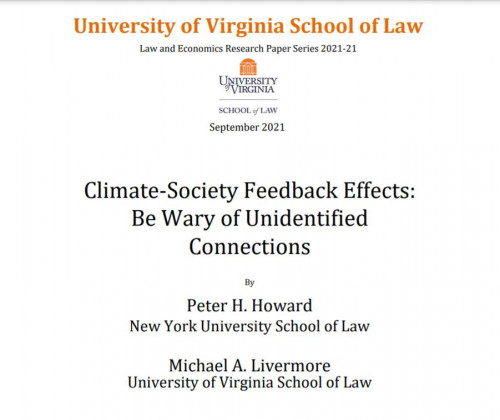-
Efficiency in Wholesale Electricity Markets: On the Role of Externalities and Subsidies
Published in Energy Economics
In our article published in Energy Economics, we use economic modeling to analytically show the relationship between generation subsidies and energy and capacity markets. We show that the feared capacity price suppression can happen only under limited circumstances and that in the short-run, the subsidies will tend to increase capacity prices. We also demonstrate that while subsidies cannot produce the first-best outcomes, there exists a range of welfare-enhancing subsidy rates and designs that improve welfare, such that regulators should think of subsidies as one of the tools available for increasing electricity market efficiency.
-
Mangling the Major Questions Doctrine
Published in Administrative Law Review
The Trump Administration construed the major questions doctrine enormously expansively and inconsistently, in ways untethered to the Court’s jurisprudence, turning it into little more than an invitation for courts to strike down regulations the Administration did not favor for policy-based reasons. Under the similarly wrongheaded and even broader arguments made by the Administration’s allies, all greenhouse gas regulations could be suspect on major question grounds. Bringing to light these argument's enormously problematic application of the doctrine is important to foreclose their successful revival in future administrations.
-
Poisoning America
A “Reasoned Consistency” Response to the Trump Administration’s Regulatory Shell Game
Published in the NYU Environmental Law Journal, the article analyzes the inconsistent manner in which the Trump administration dealt with cost-benefit analysis, federalism, and the treatment of dirty, old sources of pollution in the design of environmental policy. The article finds that though inconsistencies across different regulations— as opposed to inconsistencies within a single regulation—have not been a core concern of the Administrative Procedure Act, its prohibition on “arbitrary and capricious” agency action is sufficiently capacious to embrace egregious inconsistencies.
-
Building a New Grid without New Legislation: A Path to Revitalizing Federal Transmission Authorities
Published Ecology Law Quarterly
In the absence of legislation, critical long-distance transmission can be developed by applying existing federal legal authorities. A number of important regulatory and commercial measures have been proposed, including streamlining transmission planning, upgrading existing transmission system components, putting transmission lines underground, and using existing rights-of-way from highways and railroads. Even if these solutions are adopted, however, state siting requirements may prove an important obstacle to developing an efficient, national transmission grid. So, this paper examines legal authorities already available to the Department of Energy and the Federal Energy Regulatory Commission to develop the interstate transmission capacity crucial to the energy transition.
-
Climate-Society Feedback Effects
Be Wary of Unidentified Connections
To ensure policies are based on accurate predictions of climate impacts, it is critical to understand social-ecological system (SES) feedbacks, including how humans change the climate by reacting to a changing climate. Building on recent scholarly work on the topic, this article describes SES interactions and how they can be incorporated into climate policy tools such as the social cost of carbon. The article then proposes a research agenda for the identification, quantification, and integration of climate-society feedbacks into social-cost integrated assessment models (SC-IAMs).
Viewing all publications in Academic Articles/Working Papers

